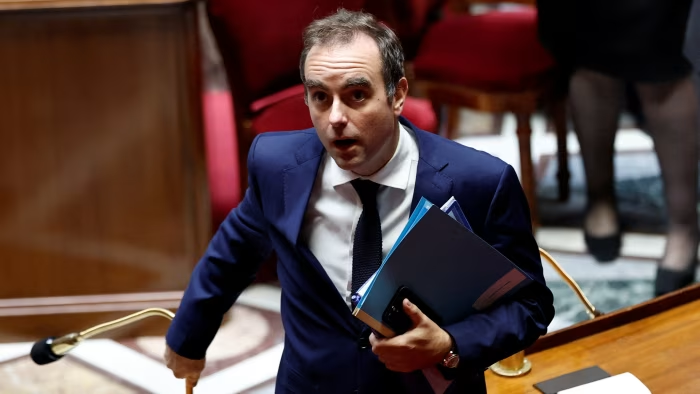Unlock the Editor’s Digest for free
Roula Khalaf, Editor of the FT, selects her favourite stories in this weekly newsletter.
Standard & Poors on Friday cut France’s credit rating on expectations that its debt will rise higher than previously anticipated in the coming years, heaping pressure on Prime Minister Sébastien Lecornu’s budget plans.
S&P is the third rating agency to downgrade France in about a month, and comes just days after Lecornu secured a fragile government at the expense of pausing President Emmanuel Macron’s proposed pensions reforms.
Lowering France’s credit rating from AA- to A+ with a stable outlook, S&P said it expects France would succeed in hitting its 5.4 per cent budget deficit target for this year. But “in the absence of significant additional budget deficit-reducing measures, the budgetary consolidation over our forecast horizon will be slower than previously expected,” it said late on Friday night.
With the spread between French and German bonds widening in recent weeks, the downgrade is likely to further increase France’s borrowing costs.
The agency said it expects government debt to reach 121 per cent of GDP in 2028, compared with 112 per cent of GDP at the end of last year. It expects conditions in the Eurozone’s second-largest economy to remain uncertain ahead of hotly anticipated presidential elections in 2027.
France was plunged into political crisis when President Macron called and lost snap elections in June 2024, producing no clear majority in parliament. Lecornu is his fourth different prime minister since the vote, with his predecessors being voted out by opposition groups over disagreements on how to handle France’s ballooning public debt pile.
Lecornu — a close ally of Macron — resigned from the post of premier and was reappointed in the space of a week, highlighting France’s deepening political instability.
He survived his first confidence votes on Thursday thanks to an abstention of most of the centre-left Socialist party, but the result came at the cost of suspending Macron’s landmark structural reform on pensions. The freeze will cost €400mn in 2026 and €1.8bn the following year.
Ahead of the votes, Lecornu argued with opposition parties to allow his government to pass a budget to bring the deficit to below 5 per cent next year.
He urged lawmakers to negotiate over his proposed €30bn package of tax rises and spending cuts rather than resorting to more challenges to his premiership.
S&P said the 2027 election “casts doubt” on whether France will be able to implement fiscal consolidation measures in the medium term — or whether the country would achieve the 3 per cent of GDP budget deficit target by 2029 it had pledged to the EU.
Reacting to the downgrade, finance minister Roland Lescure said it was “now the collective responsibility of the government and parliament to adopt a budget that meets this [5.4 per cent] target before the end of 2025”.
